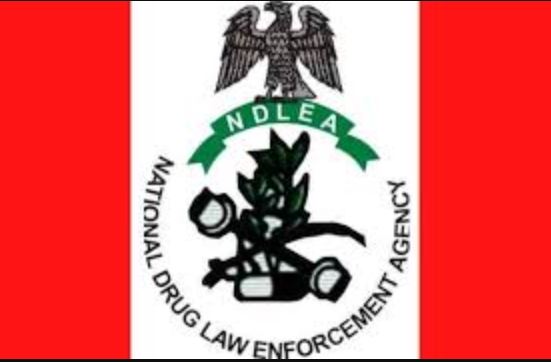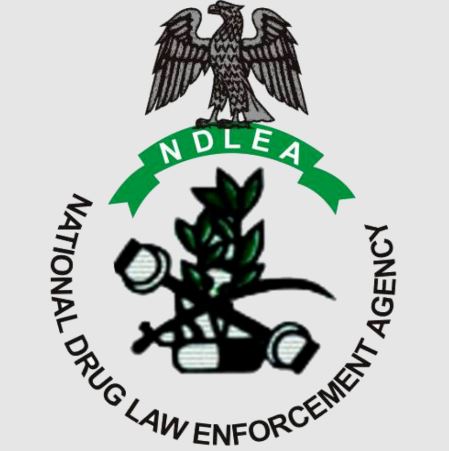
Full Meaning Of NDLEA And Their Functions
The NDLEA stands for the National Drug Law Enforcement Agency. It is a Nigerian government agency responsible for enforcing drug laws within the country.
What Are The Functions Of NDLEA In Nigeria?
Here are some of the key functions of the NDLEA In Nigeria:
1. Enforcement Of Drug Laws
One of the main duties of the NDLEA is enforcing drug laws across Nigeria. This involves taking direct action to stop the illegal trade of narcotic drugs and psychotropic substances.
The NDLEA conducts raids, arrests drug traffickers, and seizes illegal drugs to disrupt the flow of harmful substances.
2. Prevention And Awareness
Aside from enforcement, the NDLEA plays a part in raising awareness about the risks of drug use. They run educational campaigns aimed at informing the public, especially young people, about the dangers of drug abuse.
These campaigns are often held in schools, communities, and public organizations to encourage individuals to avoid drugs and make informed, healthy choices.
3. Counseling And Rehabilitation
For individuals already struggling with drug addiction, the NDLEA offers counseling and rehabilitation services. They provide programs that help people recover from substance use disorders and reintegrate into society as productive members.
The NDLEA addresses the human side of drug abuse, by offering them support, focusing not just on punishment but also on treatment and recovery.
4. Collaboration With Other Agencies
The NDLEA recognizes that drug-related crimes often involve complex networks. To better tackle these issues, they collaborate with other law enforcement agencies, both within Nigeria and internationally. This cooperation improves intelligence gathering and research, making the NDLEA’s efforts more effective.
READ ALSO: Top 10 Largest Army Barracks In Nigeria
History Of NDLEA In Nigeria
The National Drug Law Enforcement Agency (NDLEA) was established in 1989, through Decree No. 48, as a response to the growing problems of drug abuse and trafficking in the country.
At the time, the Nigerian government saw the urgent need for a dedicated agency to handle the increasing drug-related concerns.
As we’ve said, the NDLEA’s main goal was to enforce drug laws and prevent the spread of narcotic drugs and psychotropic substances across Nigeria.
In its early years, the NDLEA faced many challenges. It had to start from scratch, creating its structure, recruiting qualified personnel, and gaining public trust.
Despite these hurdles, the agency raises awareness about the dangers of drug abuse and strictly enforces laws against drug trafficking. Over the years, the NDLEA achieved many milestones.
In the late 1990s and early 2000s, the agency carried out major drug seizures. These actions helped disrupt trafficking networks and sent a clear message about the seriousness of drug laws in Nigeria.
The agency also went through several leadership changes, with each new leader bringing fresh strategies to tackle the changing landscape of drug abuse and trafficking.
Also, the NDLEA worked with international organizations like the United Nations Office on Drugs and Crime (UNODC). However, allegations of corruption and inefficiency have at times overshadowed its achievements.
These issues point to the challenges that law enforcement agencies face when trying to maintain integrity while fighting drug-related crimes.
In recent years, the NDLEA has adapted to new trends in drug trafficking. The rise of synthetic drugs and online drug sales has pushed the agency to update its strategies.
Today, the NDLEA focuses not only on enforcement but also on prevention and rehabilitation programs for people affected by substance use disorders.
Structure Of NDLEA
The structure of the National Drug Law Enforcement Agency (NDLEA) in Nigeria is organized into several key directorates, each handling different aspects of drug law enforcement and public education about drug-related issues.
This organization allows the NDLEA to address different components of drug trafficking, abuse prevention, and legal proceedings efficiently:
- Directorate of Intelligence
- Directorate of Operations
- Directorate of Drug Demand Reduction
- Directorate of Prosecution and Legal Services
- Directorate of Media & Advocacy
- Directorate of Training and Manpower Development
- Directorate of Chemical Monitoring and Forensic Services
- Directorate of Airport Operations
- Directorate of Seaport Operations
- Directorate of Proceeds of Crime Management
- Directorate of Asset and Financial Investigation
- Directorate of Internal Affairs and Provost Marshall
- Directorate of Technical Services
- Directorate of Special Duty/Strike Force
- Directorate of Planning, Research and Statistics
- Directorate of Finance and Accounts


